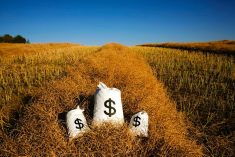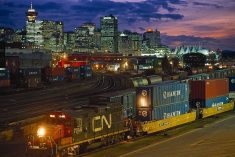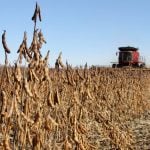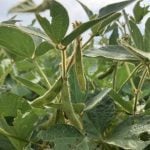British Columbia farmers who’ve taken pandemic-induced losses in farm income will be able to keep their farm properties classified as such for another tax year.
The province on Monday announced that for the second year running, it will waive the minimum farm income thresholds normally required for B.C. properties to be classified as farms for property tax purposes.
Agriculture Minister Lana Popham, in a release, said that while purchases of B.C. foods have grown “instinctively” among consumers and communities over the past year, the COVID-19 pandemic still “has been very difficult for everyone, including the thousands of British Columbians who are involved in putting food on our tables.”
Read Also

U.S. grains: Soy futures post biggest monthly gain in nearly five years on China trade optimism
U.S. soybean futures climbed to a 15-month high and posted their biggest monthly gain in nearly five years on Friday following a rally fueled by the prospect of revived exports to China.
Had a similar waiver not been put in place last year, “more than 400” properties reporting sub-threshold farm income, as well as several “developing” farms, risked losing their farm classification for 2021, the province said.
(“Developing” farms are properties in the process of setting up as farms but not yet generating sufficient farm income. Such an operation must submit a farm development plan for approval before it can qualify for the farm classification.)
With the waiver again in place, “farmers will not have to worry about the possibility of losing their farm classification and having an increase in property taxes in 2022.”
For the 2022 tax assessment roll, the deadline to apply for farm classification — or for the “retired farmer’s dwelling land” classification — is Oct. 31 this year.
B.C. had almost 19,000 farm properties for the 2021 tax year. In a typical year, that classification requires a property to generate a “minimum amount of gross income from a qualifying agriculture use, based on the size of the parcel of land.”
For example, a farm operation area of between 1.98 and 10 acres must generate at least $2,500 in gross farm income per year. If larger than 10 acres, it must generate at least $2,500 plus five per cent of the actual value of the area in excess of 10 acres.
BC Assessment annually sends out self-reporting income questionnaires, backed up with “intermittent” inspections, to determine whether a property continues to qualify.
The province “will continue to be responsive in our targeted COVID-19 supports for people and businesses, so we can build the foundation of a strong recovery,” Finance Minister Selina Robinson said in Monday’s release. — Glacier FarmMedia Network













